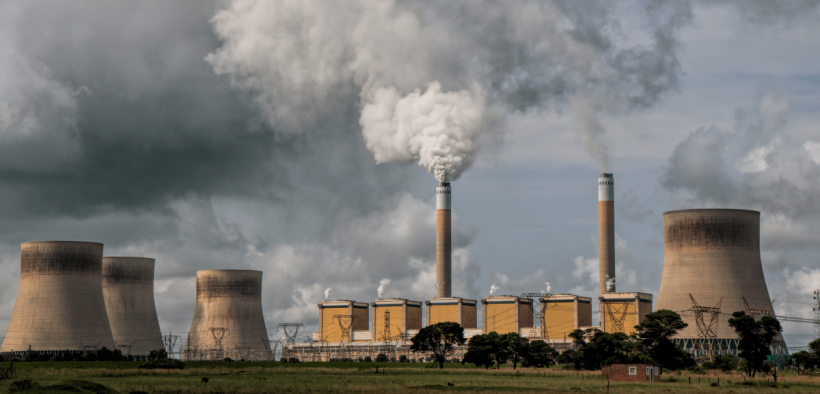Moving on from coal is a systemic challenge for Australia
Share

We all know that burning vast amounts of coal is bad news for our planet. At least 30% of global carbon emissions are a direct result of the coal sector, by recent estimates. And despite increasing attention on the need to drastically reduce the ratio of coal in the energy mix, in several countries – Australia included – coal production remains high.
At 390 megatons in 2020, Australia is the second-largest coal exporter in the world, and as Jakob Stausholm, CEO of Rio Tinto, has warned, the country’s transition from coal power to renewable energy generation is much too slow.
Climate change and environmental factors are, understandably, central to the discussion on the future of coal. Yet economically and socially, the sector also has significant impacts – for which transparency is worryingly lacking.
That is why Global Reporting Initiative (GRI) launched a new reporting standard for coal in March, which sets the best practice for any company operating in the sector, large or small, to take accountability for their impacts.
Global Reporting Initiative (GRI) is an independent, international organization that helps businesses and other organizations take responsibility for their impacts, by providing the global common language to report those impacts. The GRI Standards are developed through a multi-stakeholder process and provided as a free public good.
Stakeholders – be they investors, civil society, governments or the public – have a right to know if natural resources are being used responsibly. From the health and biodiversity impacts of dust and pollution, to major incidents like mine fires or tailings disasters, poor understanding of impacts means companies and communities alike don’t know what potential catastrophes they may face.
The GRI Standards are already used by most major companies around the world. For example, three-in-four of the Australian companies listed on the Fortune 500 use GRI for their sustainability reporting. The GRI Sector Standard for Coal means businesses no longer have an excuse for murky or inconsistent disclosure, on critical issues like how they are going to transition from coal in a way that meets their obligations to their workforces and local communities.
While the war in Ukraine is half a world away, the energy crisis it is perpetuating has seen Australia experience a rise in demand for coal. But the need to transition away from this emission-intensive fuel means that declining exports are inevitable.
That means major social and economic consequences if coal-mining regions do not plan ahead now and diversify from coal. All of this only increases the need for greater scrutiny on Australian coal producers, with growing demands that they do much more to mitigate their impacts and communicate their plans for the future.
The question is, will Australia be at the forefront of the low-carbon transition, safeguarding the economic viability of vulnerable communities while facing up to the risks of unabated climate change? To equip communities, stakeholders and the nation as a whole with the information needed for an open debate on the impacts of the sector, positive and negative, transparency is a prerequisite.
Mia d’Adhamar joined GRI’s Standards Division in 2019, where she now leads the team developing the new Sector Standards program. Previously in her career she worked in corporate affairs and community relations for Woodside Energy in Perth, Australia, and in the Department for Commerce, Western Australia State Government.
Mia holds a degree in Management Accounting & Human Resource Management from the University of Western Australia, and a post-graduate qualification in Social Impact & Social Innovation.


Today’s Pick
11th Annual Aus Goverment Data Summit
April 1, 2025
7th Annual NZ Government Data Summit
May 7, 2025
3rd Public Sector Comms Week
May 14, 2025
Subscribe
We send emails,
but we do not spam
Join our mailing list to be on the front lines of healthcare , get exclusive content, and promos.
AI appointment Australia Australian boost boosts business businesses covid-19 cyber cyber attack cyber security cybersecurity data data breach data management defence Digital employment enhance enhances fraud funding governance government grants infrastructure Innovation Lockdown management new zealand NSW NZ online privacy public Public Sector queensland renewable energy scams security Social Media Technology telecommunications victoria
-

Understanding and building your digital strategy
Digital Government, Opinion
-

Featured Leader: Jamie Morse on multi-channel strategies for communication
Communications, Featured Leader
-

Featured Leader: Tegan Tembe of NSW Treasury on creating solid planning strategies and processes
Featured Leader
-

Wirraka Maya Health Service improves patient care with My Health Record
Learning
Show More-

Effects of ineffective communication in the workplace
Communications, Personal Development
-

7 ways you can enhance your personal development skills
News, Personal Development
-

5 advantages of working in the public sector
News, Personal Development, Professional Development
-

7 causes of communication issues in the workplace
Communications, News, Personal Development
Show MoreLast Viewed